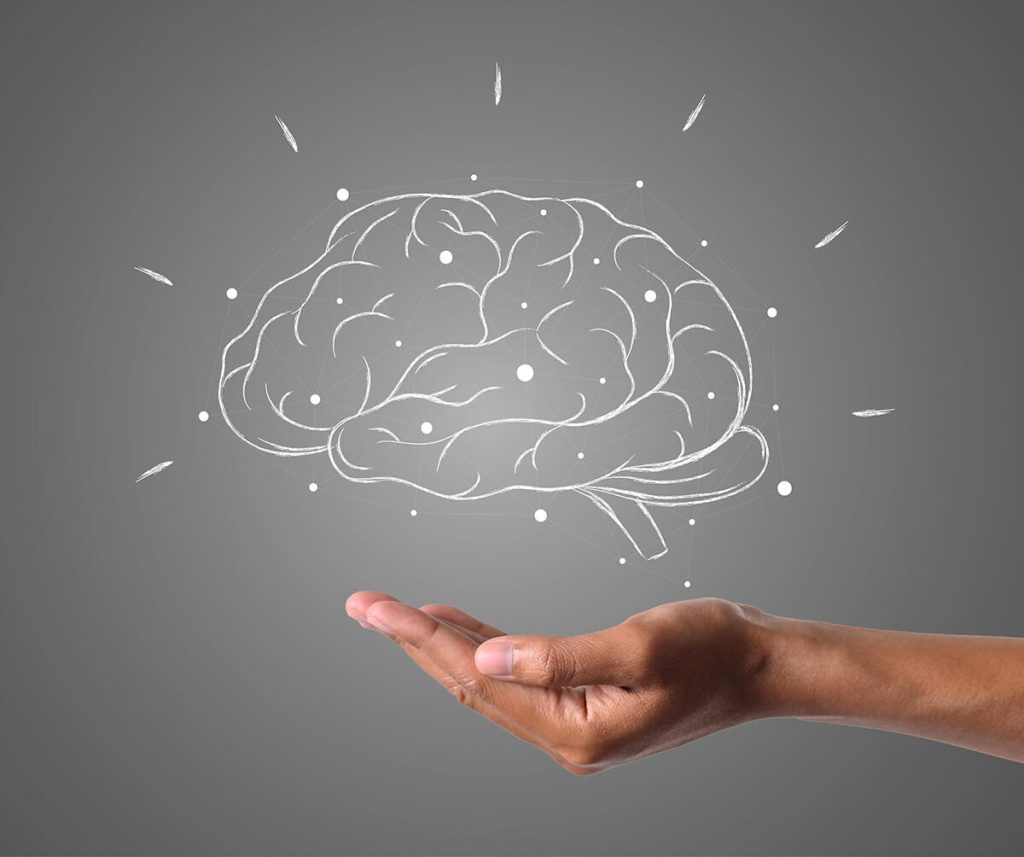
Brain Regeneration
Most people believe that brain cells cannot divide or repair themselves—that once damaged, they’re gone for good. It’s commonly thought that if someone develops dementia or Alzheimer’s disease, there’s no way to improve the condition. Likewise, in cases of paralysis or stroke, it’s often assumed that recovery of motor function is impossible. However, this is not entirely true.
In reality, brain cells do have the capacity to divide and replace those that have died, and they can repair themselves. The key issue is that this regenerative process occurs extremely slowly. As a result, any self-healing effects in the brain take a very long time to become noticeable—so much so that they’re often perceived as nonexistent.
Our bodies naturally produce a specific type of protein that stimulates brain cells to repair themselves. However, this protein is found in only very small amounts in the brain, which limits the effectiveness of the repair process. Consequently, the brain’s healing is both slow and insufficient, while damage can happen rapidly—leading to a continued decline in neurological function.
This special protein that promotes nerve system regeneration is called a Neuropeptide. The term “Neuro” refers to the nervous system, and “Peptide” means a short chain of proteins. So, a Neuropeptide is a short-chain protein specifically designed to support the nervous system. It is not found in ordinary foods and is instead produced naturally within the brain. This means it cannot be obtained through diet.
Brain Booster
Today, this special protein can be extracted and used in two forms: oral supplements and intravenous injections. The intravenous form is commonly referred to as a Brain Booster. It works by stimulating the regeneration of brain cells, promoting the branching of neurons, enhancing the function of glial (supporting) cells, and reducing inflammatory agents that cause brain damage.
To achieve the best results, Brain Booster should be administered as soon as possible after a brain injury. The earlier the protein is introduced following the onset of symptoms, the more effective the treatment. According to recommendations approved by both the U.S. FDA and Thailand’s FDA, prompt and continuous administration delivers optimal outcomes.
For example, in cases of ischemic stroke, the special protein should ideally be given immediately after hospital discharge to accelerate brain tissue repair. Some private hospitals have begun administering this therapy while patients are still admitted. However, intravenous supplementation is not yet widely available in Thailand. Due to the relatively high cost, it remains out of reach for most public hospitals, which often do not offer this advanced protein therapy to patients.

In cases where the goal is to support recovery from cognitive decline, Alzheimer’s disease, or simply to enhance brain function—such as during periods of intense studying, demanding mental work, sleep deprivation, mental fatigue, memory problems, or early signs of dementia—this special protein can also be used. However, the dosage and frequency of administration are generally lower than those used for treating ischemic brain conditions.
As for stimulating brain repair using stem cells, standard stem cells are not suitable. The typical stem cells used for skin rejuvenation, osteoarthritis treatment, or general health support are relatively large in size and cannot pass through the brain’s protective barrier. The brain is an extremely vital organ, so the body has a special defense system called the Blood-Brain Barrier (BBB) that tightly controls what substances can enter the brain. While this barrier plays a protective role, it also prevents regular stem cells from reaching brain tissue.
Therefore, a special type of stem cell—Amniotic MSCs—is required. These cells are small enough to penetrate the BBB and are capable of repairing and restoring brain tissue effectively.
Slowing Brain Degeneration and Stimulating Brain Regeneration
Slowing down brain degeneration and stimulating brain regeneration cannot be achieved by using only Brain Booster or Amniotic MSCs. It also requires lifestyle adjustments and self-care. Here are practical steps for taking care of your brain:
-
Avoid Brain-Damaging Behaviors
– Inadequate sleep, irregular sleep schedules, sleeping after 11 p.m.
– Chronic stress, head trauma, and frequent exposure to electromagnetic waves from devices such as computers, mobile phones, and tablets. -
Avoid Toxins That Harm the Brain
– Alcohol, tobacco, air pollution (e.g., PM2.5), and heavy metals such as aluminum, mercury, manganese, and copper.
– Exposure to chemical contaminants such as pesticides, fungicides, herbicides, plastics, and volatile organic compounds (VOCs).
– Detoxification of the body can help reduce harmful substances and minimize damage to brain tissue. -
Maintain Optimal Health Indicators
– Keep blood pressure, blood sugar, hormone levels, and homocysteine levels within a healthy range. -
Exercise Both Body and Brain
– Engage in aerobic exercise for at least 150 minutes per week.
– Stimulate the brain by learning new things, such as using your non-dominant hand, learning new languages, playing a musical instrument, socializing, playing brain-training games, or reading regularly before bedtime. -
Eat a Brain-Friendly Diet
– Reduce intake of refined carbohydrates and all types of sugar (including artificial sweeteners).
– Limit consumption of land animal meat and increase intake of seafood.
– Ensure that at least 50% of every meal consists of vegetables.
– Increase healthy fats such as olive oil, tea seed oil, avocado oil, avocados, pumpkin, whole grains, fish oil, and ground flaxseeds.
– Limit fruit intake to no more than a handful per meal.
– Following a Mediterranean diet has been shown to help slow cognitive decline. -
Cultivate a Positive Mindset
– Think positively, be optimistic, reduce stress, and let go of things beyond your control. -
Consult an Anti-Aging or Functional Medicine Specialist Before Taking Supplements or Herbs
– The appropriate type and dosage of nutrients or herbs vary by individual and should be tailored based on medical history, symptoms, and health test results. -
Coffee Tip
– Research shows that drinking black coffee (without milk, sugar, creamer, sweeteners, or herbal extracts) 1–2 cups a day, preferably in the morning or before 2 p.m., may help reduce the risk of cognitive decline.
| Recommended Program: Brain Booster | |
|---|---|
| Item | Price (THB) |
| IV Neuropeptide Brain Booster 20 sessions* (100 ampules) | 120,000 |
| Oral Neuropeptide 1 Dihexa (6 bottles) | 38,700 |
| Oral Neuropeptide 2 Noopept (6 bottles) | 9,000 |
| PRP Ready Growth Factor Injection (3 sessions) | 15,000 |
| Placenta Extract Injection (3 sessions) | 15,000 |
| Subtotal | 74,700 |
| Total Regular Price | 197,700 |
| Special Package Price | 138,390 บาท (30% off) |
Free Bonus: 6 bottles of Pregnenolone (Value: 10,800 THB)
*Each session includes 5 ampules (50 ml)
| Recommended Program: Brain Recovery | |
|---|---|
| Item |
Price(THB)
|
| IV Neuropeptide Brain Booster 20 sessions* (100 ampules) | 120,000 |
| Oral Neuropeptide 1 Dihexa (6 bottles) | 38,700 |
| Oral Neuropeptide 2 Noopept (6 bottles) | 9,000 |
| PRP Ready Growth Factor Injection (3 sessions) | 15,000 |
| Placenta Extract Injection (3 sessions) | 15,000 |
| Amniotic MSCs (Special Cultured Cells) 50 mCell | 2,350,000 |
| Total Regular Price | 2,547,700 |
| Special Package Price | 1,273,850 (50% off) |
Free Bonuses:
-
20 vials of NAD+ (Value: 200,000 THB)
-
Special Health Check-up (Value: 109,330 THB)
*Each session includes 5 ampules (50 ml)

 ไทย
ไทย
















